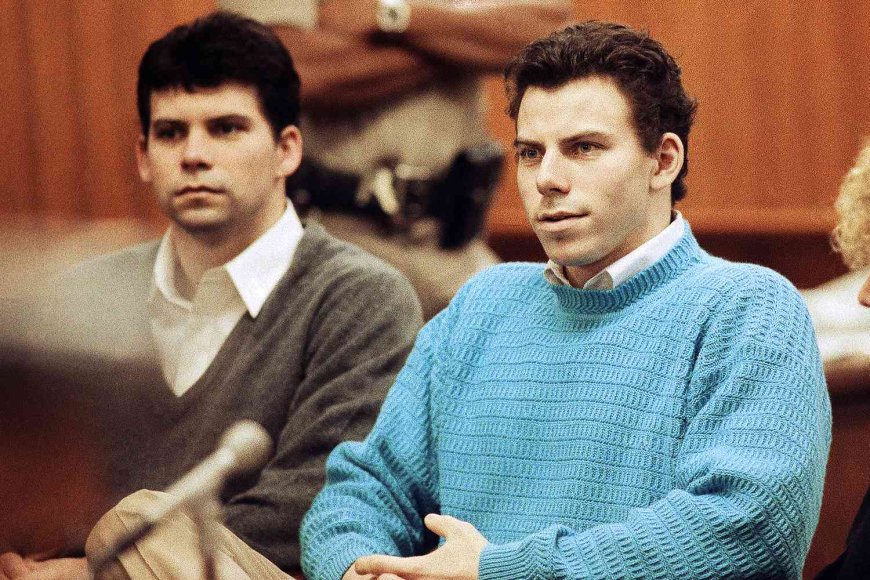The Menendez Brothers’ Parole Denial: New Evidence and Family Perspectives
California parole board denies the Menendez brothers’ release on Friday, August 22, 2025, despite new family statements and psychological updates. Exclusive insights into evidence, family perspectives, and public sentiment.

The decades-long saga of Erik and Lyle Menendez—the brothers convicted of killing their parents in 1989—took another turn this week. On Friday, August 22, 2025, California’s parole board once again denied their request for release, despite newly surfaced family statements and psychological updates that cast fresh light on the case.
For over 35 years, the Menendez brothers’ story has been both a courtroom drama and a cultural touchstone, spawning documentaries, TV dramatizations, and countless debates on family trauma, justice, and accountability. The most recent hearing revealed not just the legal complexities of parole, but also the evolving narrative within their own family and the broader public.
The Parole Decision: A Familiar Outcome
According to court documents reviewed during Friday’s session, both brothers presented strong records of rehabilitation, including participation in educational programs, mentoring fellow inmates, and long-standing clean disciplinary records. However, the board cited the “heinous and calculated nature of the crime” as overriding factors that continue to outweigh their progress.
Legal analyst Carla Jennings, a veteran criminal defense attorney, explained in an interview:
“Parole boards weigh remorse and rehabilitation, but in cases with high-profile violence, the severity of the original crime almost always tips the balance. The Menendez brothers face an uphill battle each time they reapply.”
The denial means the brothers will not be eligible for another hearing until 2028, marking nearly four decades behind bars since their arrest.
New Evidence: Family Statements and Audio Excerpts
One of the more surprising developments this year came from family advocates. Newly surfaced audio recordings, reportedly from relatives who were initially reluctant to testify in the 1990s, were introduced by the brothers’ legal team. In these recordings, family members corroborate past allegations of long-term abuse within the Menendez household—allegations central to the defense’s original case but widely dismissed at trial.
A cousin’s voice can be heard in one recording stating:
“The boys had confided in me about what was happening at home. I regret not coming forward back then, but the fear in the family was real.”
While the parole board acknowledged the emotional weight of this evidence, it was ultimately deemed insufficient to outweigh the brutality of the killings. Still, advocates argue that such recordings add crucial context to understanding the brothers’ actions.
A Psychological Profile Update
Prison psychologists who have monitored the Menendez brothers for decades also provided updated assessments during the hearing. Both Erik and Lyle were described as “low-risk” for reoffending, exhibiting what experts termed “complete institutional adaptation.”
Dr. Andrew Rosen, a forensic psychologist not directly connected to the case, offered context:
“The Menendez brothers represent a rare situation. They are middle-aged men whose crime stemmed from a unique family dynamic that no longer exists. Psychologically, the risk of them repeating such behavior outside prison is extremely low.”
Yet, the parole board emphasized that rehabilitation, while commendable, does not erase the gravity of the original acts.
Public Opinion: Shifting Sentiments
Outside the courtroom, public sentiment appears to be slowly shifting. Social media discussions following the hearing reflected a notable divide between older generations who remember the sensational 1993 and 1996 trials and younger audiences discovering the case through documentaries and streaming platforms.
A recent survey by the Pew Research Center found that 46% of respondents under 35 believe the brothers should be given a chance at parole, compared to only 22% of those over 50. This generational gap reflects a broader debate about justice reform and the role of rehabilitation in long-term sentencing.
The Business of True Crime
The Menendez brothers’ story has fueled a lucrative true-crime industry, with documentaries from networks like A&E and streaming services such as Netflix keeping the case in public view. Industry analysts suggest that continued public fascination could impact the way parole hearings are framed, particularly as media attention often influences the perceived public interest in such high-profile cases.
Event planner and media consultant Jenna Collins noted:
“Every time there’s new content—whether a podcast or docuseries—the Menendez story re-enters the cultural conversation. This level of visibility both helps and hurts the brothers. It keeps their case alive but also ensures parole boards feel pressure not to appear lenient.”
Family Advocates: Voices of Forgiveness
The brothers’ surviving relatives remain divided. Some cousins have expressed forgiveness, citing the abuse claims and the brothers’ personal growth in prison. Others, however, insist that the murders of José and Kitty Menendez can never be excused.
The family advocacy group Justice Through Understanding, which supports parole for individuals convicted under claims of abuse, argued in a recent statement:
“The Menendez case is emblematic of how trauma can lead to tragedy. Punishment should not eclipse the opportunity for healing, both for survivors and perpetrators.”
Looking Ahead
As the Menendez brothers continue to serve their life sentences without parole, their legal team has pledged to appeal Friday’s denial, possibly taking the case into federal review. Meanwhile, the debate around justice, trauma, and the rehabilitation of violent offenders remains unresolved.
The next parole hearing in 2028 will likely reignite the same questions that have lingered for nearly four decades: Can remorse and rehabilitation ever outweigh a crime that shocked the nation?
For now, the answer remains “not yet.”











